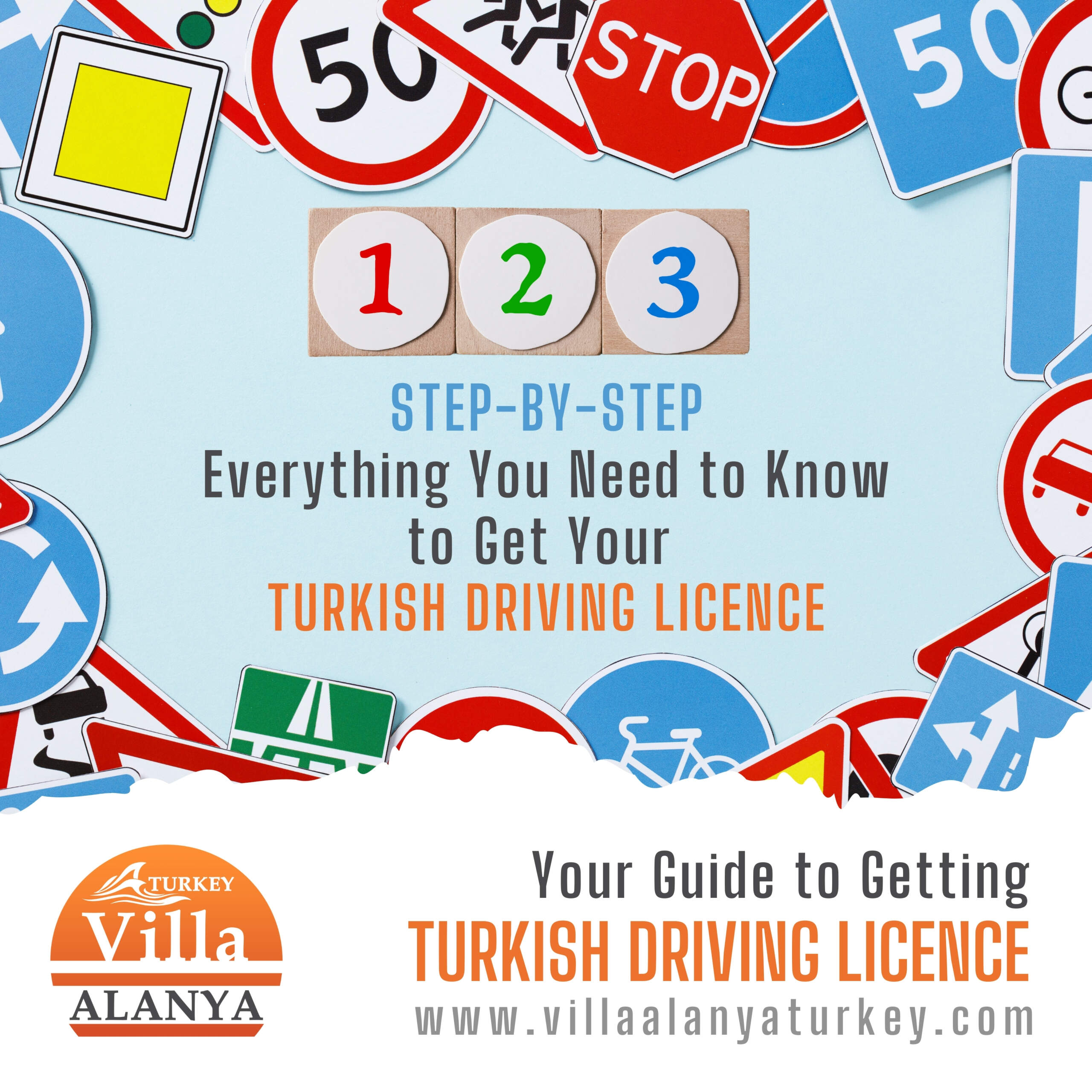Understanding the Requirements for a Turkish Driving Licence
Obtaining a driving licence in Turkey involves meeting several eligibility criteria set by the Turkish authorities. The first requirement is age; individuals must be at least 18 years old to apply for a standard car driving licence (Category B), while for motorcycles (Category A), the minimum age is 20. For other vehicle categories, such as trucks and buses, the age requirement may be higher, typically 21 or 24 years, depending on the specific category.
Documentation is another critical aspect of the application process. Applicants need to provide a valid residency permit if they are foreign nationals, ensuring their legal stay in Turkey. Additionally, a valid identification document, such as a Turkish ID card or a passport, must be presented. For foreign nationals, a translated and notarized copy of the passport may also be required.
Health and vision examinations are mandatory to ensure that all drivers are physically capable of operating a vehicle safely. Applicants must undergo a medical check-up conducted by a registered medical practitioner. This examination includes a vision test to confirm that the applicant meets the necessary visual acuity standards. If corrective lenses are required, this will be noted on the driving licence.
Turkey offers various categories of driving licences, each permitting the holder to drive specific types of vehicles. The most common categories include:
- Category A: Motorcycles.
- Category B: Standard cars and light commercial vehicles.
- Category C: Trucks.
- Category D: Buses.
Each category has specific requirements, and additional training or tests may be necessary to qualify. For example, obtaining a Category D licence to drive buses requires not only a higher age threshold but also additional training and testing compared to a Category B licence.
Understanding these requirements is essential for anyone looking to obtain a Turkish driving licence. Meeting the age criteria, gathering the necessary documentation, and successfully passing health examinations will ensure a smoother application process. Furthermore, choosing the appropriate category based on the type of vehicle one intends to drive is crucial for compliance with Turkish driving regulations.
Enrolling in a Driving School
Enrolling in a driving school is a crucial step in obtaining a driving licence in Turkey. The first step is selecting a reputable driving school. Prospective drivers should research and compare different schools, considering factors such as the school’s success rate, the qualifications of the instructors, and reviews from former students. It’s advisable to visit the schools in person to ask questions and gauge the environment. Accreditation by the Turkish Ministry of Education is also an essential criterion, ensuring that the school adheres to national standards.
The cost of driving courses in Turkey varies depending on the location and the school’s reputation. On average, the fees range between 2,000 and 3,000 Turkish Lira. This fee typically covers both the theoretical and practical components of the course. Some schools might offer installment payment options to ease the financial burden. It is important to confirm what is included in the fee, such as textbooks, online resources, and additional practice sessions if needed.
The duration of the training generally spans several months, typically between two to three months. This period allows students to absorb extensive knowledge and gain sufficient driving practice. The course is divided into theoretical and practical components, each playing a vital role in preparing for the driving test.
The theoretical component involves classroom sessions where students learn about traffic laws, road safety, vehicle mechanics, and first aid. These subjects are crucial as they form the foundation of safe driving practices. Theoretical classes usually involve interactive sessions, quizzes, and exams to ensure students understand the material thoroughly.
The practical component consists of hands-on driving practice. Students receive personalized instruction from experienced driving instructors. These sessions cover various driving maneuvers, such as parking, lane changing, and navigating through different traffic conditions. Practical training usually includes a set number of hours behind the wheel, ensuring that students gain confidence and proficiency in real-world driving situations.
By carefully selecting a reputable driving school and diligently participating in both theoretical and practical training, prospective drivers can significantly enhance their chances of successfully obtaining a driving licence in Turkey.
Passing the Theoretical and Practical Exams
Obtaining a driving licence in Turkey involves successfully passing both a theoretical and a practical exam. The theoretical exam is designed to assess your understanding of various crucial topics related to driving, including traffic rules, road signs, and first aid. This exam typically consists of multiple-choice questions, and it’s essential to be well-versed in these subjects to ensure a passing score.
The theoretical exam covers a broad range of topics. One of the primary focus areas is traffic rules, which includes understanding the regulations governing road usage, speed limits, and the rights and responsibilities of drivers. Additionally, you will need to recognize and interpret various road signs, which is critical for safe driving. First aid knowledge is also tested, as it is vital for drivers to be prepared for emergency situations on the road.
To prepare for the theoretical exam, it is advisable to study the official driving manual provided by the Turkish Ministry of Education. This manual contains all the necessary information and practice questions. Furthermore, there are online resources and mobile applications available that offer practice tests and study aids. Taking these practice tests can help you familiarize yourself with the format of the questions and identify areas where you need further study.
Once you have successfully passed the theoretical exam, you will proceed to the practical driving test. This test evaluates your actual driving skills and ability to handle a vehicle safely. Key skills assessed include starting and stopping the vehicle, changing lanes, obeying traffic signals, parking, and performing maneuvers like three-point turns. The examiner will also observe your overall awareness of the road and adherence to traffic laws.
To prepare for the practical driving test, it is crucial to have ample practice driving under the supervision of a qualified instructor. Focus on mastering the fundamental driving techniques and developing confidence behind the wheel. On the day of the exam, ensure that you are calm, well-rested, and familiar with the test route if possible.
By thoroughly preparing for both the theoretical and practical exams, you can increase your chances of obtaining a driving licence in Turkey and becoming a competent and responsible driver.
Applying for and Receiving Your Driving Licence
After successfully passing both the theoretical and practical driving exams in Turkey, the next step involves applying for your driving licence. This process is straightforward but requires careful attention to detail to ensure all necessary documents and procedures are correctly followed.
To begin with, gather the required documents. You will need your national ID or passport, proof of residence, a health report from an authorized medical institution, a certificate of completion from a driving school, and your exam result documents. Additionally, you will need to provide recent passport-sized photographs and, if applicable, a foreign driving licence.
With these documents in hand, you will need to fill out the driving licence application form. This form is available at the local Traffic Registration Office or can be downloaded from their official website. Ensure that all information provided is accurate and complete to avoid any delays in processing.
Once your application form and documents are ready, submit them to the Traffic Registration Office. It is advisable to make an appointment in advance to streamline the process. During your visit, you will also be required to pay a processing fee. The fee amount varies depending on the type of licence you are applying for and is payable at the office or through designated bank branches.
After submission, the processing time for your driving licence typically ranges from a few days to a couple of weeks. You will receive a temporary driving licence immediately upon approval, which you can use until the physical licence card is issued. The physical driving licence will be mailed to your registered address.
Upon receiving your physical driving licence, verify that all information is correct. If there are any discrepancies, contact the Traffic Registration Office immediately. It is also advisable to familiarize yourself with the local traffic rules and regulations, as adherence to these is essential for maintaining your driving privileges in Turkey.
Contact us now to explore the property investment opportunities in Turkey:
Phone: 90 242 517 33 75
Mobile: 90 532 689 48 62 / 90 532 262 48 62
Website: www.villaalanyaturkey.com





